People of the Book World
Golden eras are fleeting, and tend to be appreciated mainly in hindsight. A notable exception was the heyday of Jewish American fiction, a heady moment that lasted two decades and was virtually unmissable. Roth reigned; Bellow bellowed; Singer spun mischievous tales of shtetl life. Cynthia Ozick arrived, trailing perfect prose, while Grace Paley brought women’s voices—earthy, sensual, Yiddish inflected—into American letters. And there were unsung heroes—editors and publishers—many Jewish themselves.
Josh Lambert, author of The Literary Mafia, knows these figures well. His book begins with a bang: an angry, paranoid Jack Kerouac ranting about the Jews. Of course, Jewish success bred resentment, and Kerouac was hardly alone: Mario Puzo, Truman Capote, and Gore Vidal all ranted similarly. Jews were too powerful. They were hoarding “those juicy Guggenheim and Ford grants.” They formed a cartel—a kind of mafia. “A Jewish literary mafia?” Lambert asks with mock amazement. “Really?”
Actually, yes. Or maybe. The question hovers uncomfortably over Lambert’s survey of Jewish literary figures. Daringly—audaciously—he takes Capote and Kerouac seriously. They may have been antisemites (and miserable, sodden wretches, to boot). But perhaps, in their crackpot way, they were on to something. A bit coyly, Lambert ponders their complaint. Simply put, did Jews have too much power in the literary world?
This, of course, is fraught territory, which may explain its attraction. Lambert is the kind of scholar who enjoys probing stereotypes—Jewish power, the hypersexualized Jew. At times he seems to wonder if bigots—antisemites—might have valid, even valuable, arguments. This tendency gives his books a certain frisson. It may suggest a liberated mind, or perhaps a constricted one.
His career suggests a certain freedom and fluidity. After attempting to write fiction, he edited JBooks.com, a literary website, then settled into a doctoral program in English literature. Meanwhile, he wrote charming, casually erudite reviews and essays on subjects ranging from Playboy to Partisan Review, Henry Roth to Krazy Kat. His eclectic interests—comedy, comic books, pornography—suggest a wholesome person’s version of transgression, and, perhaps, the fun you can have doing research. If there’s a connecting thread, it’s notions of what’s allowable; what’s forbidden; how basic desires (for pleasure and self-expression) meet forces of suppression.
To choose these subjects is, obviously, to risk self-exposure, or at least pesky questions. Indeed, The Literary Mafia is deeply personal, not as autobiography but as a record of strong opinions and moral objections. Its targets are serious and topical: nepotism, cronyism, and unearned privilege. Lambert loves literature, but he hates literary patronage.
He begins on solid ground, with a brisk survey of Jewish literary success. Before 1890, Jews were as rare in publishing as in professional sports. Then came Joseph Pulitzer, the newspaper magnate, and Adolph Ochs, the New York Times chieftain. The name Ben Huebsch might mean little to modern readers, but Lambert calls him a pioneer—the first Jewish founder of a publishing house. A decade later, Alfred A. Knopf barged into publishing (starting, like many others, near the bottom). In their wake came the major Jewish-owned houses: Simon & Schuster, Random House, and Viking. Hollywood had its Jewish studio heads. Publishing had its Knopfs, Simons, and Cerfs.
Soon, publishing’s open door swung wider. By the 1950s, most publishers could field a minyan (or “ethnic niche,” as Lambert puts it). This, of course, followed broader postwar trends: as antisemitism declined, Jewish representation rose. A sociologist studying magazines reported a suspicious trend: Jews comprised “about half of the American intellectual elite.” The actual numbers were smaller, but clearly something had changed. “The Jewish market has become quite a good one,” a Knopf editor observed; even the “goy polloi” were buying, wrote another staffer, citing a demographic theretofore unnamed in American publishing.
Once, this would have been considered a success story, a cause for pride. Having burst through the gates, Jews eventually became gatekeepers themselves. One thinks of Augie March: “first to knock, first admitted; sometimes an innocent knock, sometimes a not so innocent.”
Lambert is concerned with the not-so-innocent side of success: how Jews wielded power. To Lambert, power is suspect, a tool of exclusion, and his chapters brim with instances of cronyism and nepotism. Many seem benign—Jewish editors helping Jewish writers. A chapter on Lionel Trilling explores the great critic’s countless favors to younger writers. Trilling’s power was immense; with a few keystrokes, he could secure a job, a fellowship, even a Cambridge scholarship. Indeed, Trilling’s second job helping writers became a burden. He quit, exhausted. No more jacket blurbs, he declared.
This might seem generous, even selfless, but Lambert suggests something darker—an “ethically dubious” pattern of favoritism. In Lambert’s view, Trilling liked writers who had what he lacked: Jewish pride and knowledge. These writers were “literary proxies, writing the literary works he himself could not.” Interesting theory, hard to prove, but surely nothing scandalous. In different moods, Lambert concedes Trilling’s “exemplary generosity” while also accusing him of hoarding power. The portrait is sour, the praise begrudging.
The need to prove Trilling’s favoritism leads Lambert into murky waters. At times, he seems more hopeful than certain about Trilling’s motives:
Without assuming too much . . . it does not seem unfair to suggest that Trilling might be understood to have been expressing some kind of ethnic or cultural solidarity or affinity . . . even if Trilling would probably have preferred not to describe the pattern in those terms.
Note the qualifiers—seem, might, some kind, probably. This type of guesswork can be difficult (human motives being complex and generally hidden). What comes through, in any case, is Trilling’s thoughtfulness, a decency that belied his cool, patrician manner.
Lambert’s chapter on Trilling raises a thorny question, one central to his project. Do we deserve our success? For writers, success requires talent, persistence, an almost naive self-belief, and courage. To Lambert, it’s mostly about connections—who you know. He’s similarly certain that fairness doesn’t exist. Publishers hire relatives. Scholars seek protégés. Editors pursue writers of similar background. In most cases, the logic of family (“homophily”) presides.
Is the “literary scene” like a family? It may seem so, but in truth, it might be more like a continent, varied and enormous. How power flows between authors, agents, and publishers—not to mention editors, reviewers, reporters, publicists, and scholars—is hardly simple. What is simple is the logic of the marketplace, which guides editors’ acquisitions (to survive, publishers need bestsellers and a profitable backlist). Within this huge, balkanized world, Jews are still a minority, less powerful than Lambert thinks.
Indeed, the very notion of “Jewish power” seems slightly dubious. Did Lambert’s subjects wield power as Jews? Most were complex people with many identities. Beyond that, why should they be lumped together? What did Bennett Cerf share with Norman Podhoretz, or, for that matter, Barbara Epstein? To assign them collective responsibility feels strange, given that (1) we go through life as individuals, and (2) our moral choices reflect mainly on us, not our families or tribes.
Lambert does capture this complex, unstable reality every so often, as when discussing the National Book Awards. Between 1965 and 1974, Jewish writers cleaned up, winning half the fiction prizes. Was there favoritism? Apparently not: the judges in those years were mostly non-Jews. When Jews did dominate the jury, in 1953, they chose an African American, Ralph Ellison. Why didn’t the judges—Saul Bellow, Irving Howe, and Alfred Kazin—choose Peter Martin’s The Landsmen, an earnest portrait of Jewish life in eastern Europe? As Lambert notes, “the result of their shared perspective was not the promotion of work by someone from a similar Jewish background or someone seen as a member of the literary mafia at all.”
The Literary Mafia can seem haphazard, but what gradually becomes clear is how the various parts cohere. What connects them, loosely, is Lambert’s sense of mission. In early 2018, Lambert cheered the “long overdue scrutiny” of powerful males “judged and sometimes punished for their sins.” That same spirit—of scrutiny and retribution—quietly propels The Literary Mafia. Indeed, Lambert’s book runs on two tracks, one scholarly, one political. It sometimes reads like a book started during the Obama years, then updated for the #MeToo era.
In activist mode, it finds a righteous purpose: exposing literary malefactors. The charges are all but read aloud as if at a literary tribunal. Philip Rahv—sexual harassment. Alfred Kazin—spousal abuse. Ford Madox Ford—misogyny. The evidence is fairly compelling, if one-sided. Lambert’s heroes are the women, the long-suffering wives who exacted literary revenge through memoirs and novels. Lambert salutes these “bracing acts of resistance,” though he does, at times, quote selectively. (Ann Birstein, long married to Kazin, also called him “the love of my life. . . . Which, when you think about it, is more than most people ever have.”)
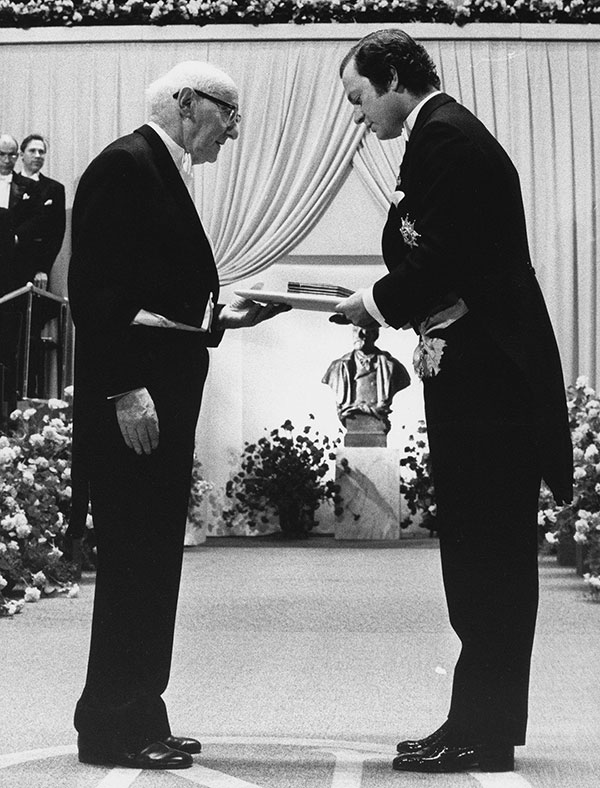
To his credit, Lambert also notes the drawbacks of privilege, the burdens borne by fortunate children. They, too, are victims—of crushing pressure and expectations. Exhibit A is Jacob Epstein, who, fresh out of Yale, was apparently shoved into writing by the literary version of stage parents (Barbara and Jason Epstein of the New York Review of Books). Disaster followed when the young author was caught plagiarizing Martin Amis’s The Rachel Papers, which suggests, if nothing else, a novel form of revenge against one’s parents. To Lambert, the mess is instructive, proof that “nepotism carries a cost”—a profound sense of fraudulence. Lambert sensitively notes how “awkward and fraught” a literary legacy can be.
Lambert has an eye for good characters, for stories with hidden resonances. Power doesn’t always corrupt; sometimes it reveals. Consider Gordon Lish, the swashbuckling editor (Esquire’s “Captain Fiction”) who’s been a magnet for criticism since the 1970s. In an online article, Lambert suggested that Lish was “your classic overbearing white man—heavy-handed, an egomaniacal emotional manipulator, a racist, and potentially a sexual predator.” Lish, who had granted Lambert an interview, was rightly furious. (“I put this fellow on notice that I was going to sue him, and I still may get around to it if I live long enough.”)
Lambert doesn’t say anything quite so outrageous here, and his portrait, though hardly gentle, is multifaceted. Here, Lish comes off as a brilliant, morally complicated character, grandiose, insecure, who nonetheless championed female writers, notably Paley and Ozick. His devotion to Paley—“Paley is a master AT WHAT SHE DOES, and you’re going to hear a strong man cry if I get anything less than cheers on this thing”—is irresistible, and when Lish published Ozick, she was amazed: “Yom Kippur stuff in Esquire? Queer! Strange! Weird! Impossible!” If this is favoritism, it’s the good kind, the enlarging, enlivening kind.
Lish loved Ozick’s fearlessness, her infallible prose. Which raises a final fraught question, namely, How do we judge what’s good? To Lambert, there’s no objective standard or even good taste, period. That might sound strange, but Lambert is adamant, dismissing the New Yorker’s fiction editor (with sublime condescension) for claiming to value excellence. Lambert approvingly cites the poet Kazim Ali: “claiming to judge work solely based on literary merit is inherently and inescapably racist.”
This seems to be where dogma has led us. “Party lines make for intellectual monotony and bad prose,” Susan Sontag warned, while Trilling hailed “variousness”—the highest virtue of literature and people. Of course, tastes differ. But no reader likes clichés, vagueness, or bathos. Most seek out vitality, originality, a sure touch, and the ability to make the effortful act of writing seem effortless.
No human is perfect, and no book is either, especially The Literary Mafia. Its flaws would be easier to forgive if it were more charitable itself, if it treated its subjects like people rather than culprits. As it is, much time is spent lassoing long dead authors and calling out opinions “that strike a contemporary reader as appallingly racist.” Anger can be clarifying. Just as often, it distorts and impairs. Lambert does level some reputations, but in the process, he also obliterates nuance and perspective.
This is a book, after all, that harps on Jewish nepotism; blames nepotism for “white supremacy;” and explicitly wishes that fewer Jews worked in publishing. It’s a work of moral outrage, though it refuses to own its anger. Instead, it finds its own righteous defense: the author is one of the good guys.
Suggested Reading
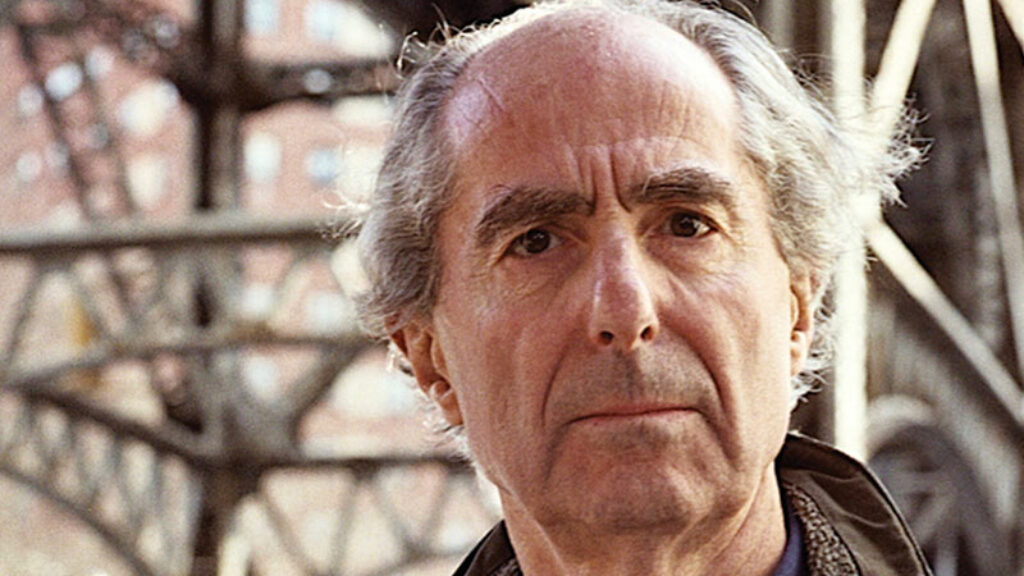
Not a Nice Boy
To every author who seemed too cautious—which was nearly every author he knew—Roth gave the same advice. “You are not a nice boy,” he told the British playwright David Hare. His friend Benjamin Taylor’s memoir is . . . nice.
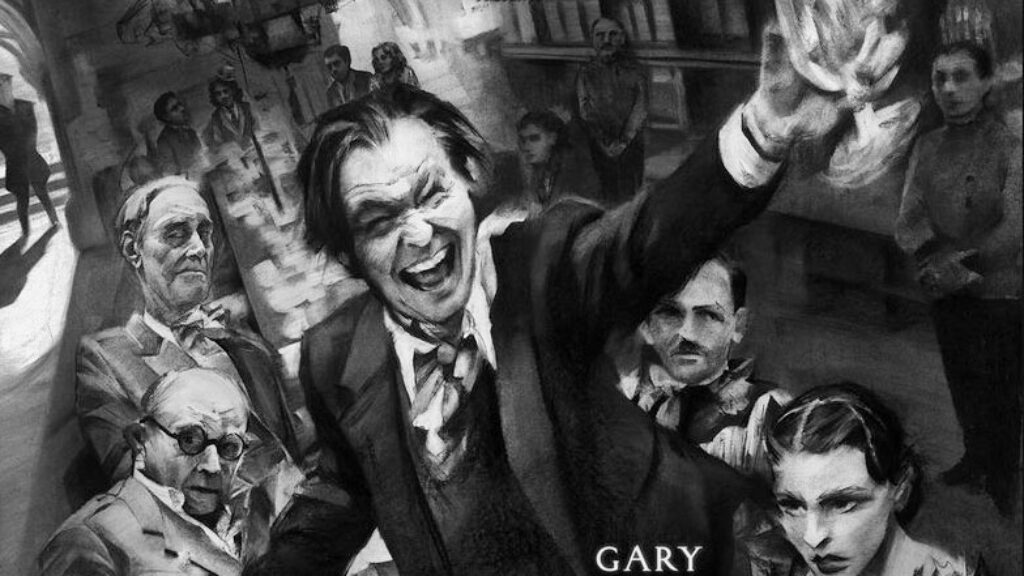
The Mocker and the Makhers
Herman Mankiewicz's life wasn't all drunken bets and witty repartee. After all, he wrote Citizen Kane. Life in 1930s "Eretz Demille."
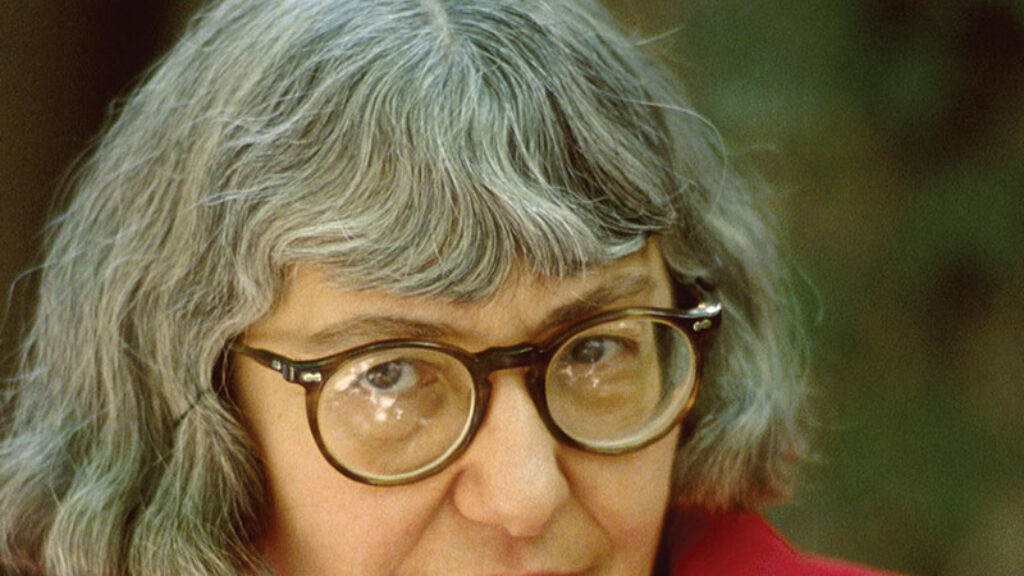
Cynthia Ozick’s Art and Ardor
Reading is a blessing and a curse in Ozick’s world, a gateway to heightened emotion and new experience and also a maze of cruel tricks and dead ends. Allegra Goodman reviews her latest novel.
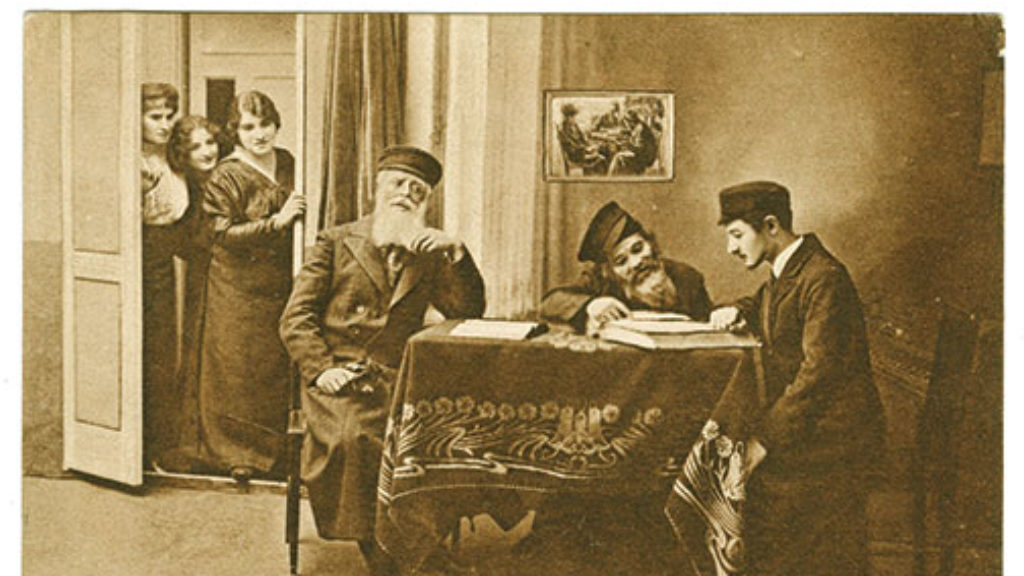
What’s Yichus Got to Do with It?
For the whole history of Jewish society, until less than two hundred years ago, love and attraction played little or no role in the making of marriages, which were arranged and contracted according to the interests—commercial, religious, and social—of the families involved.
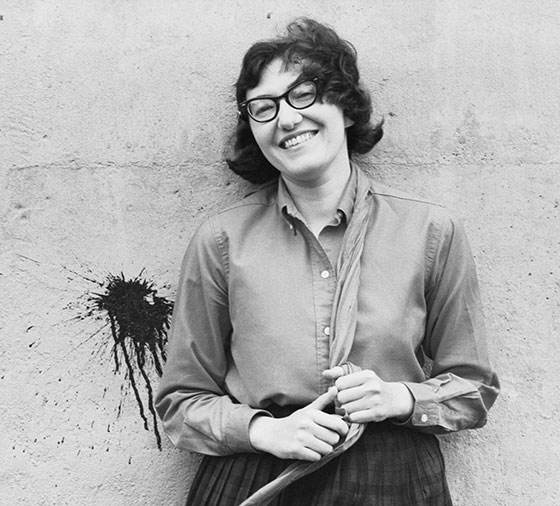
Comments
You must log in to comment Log In